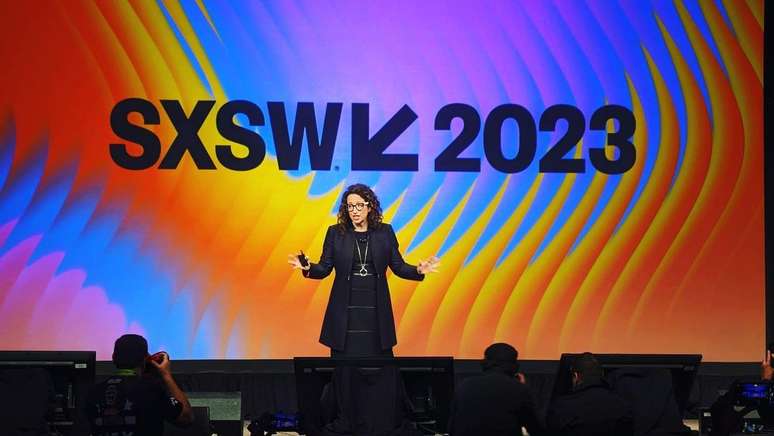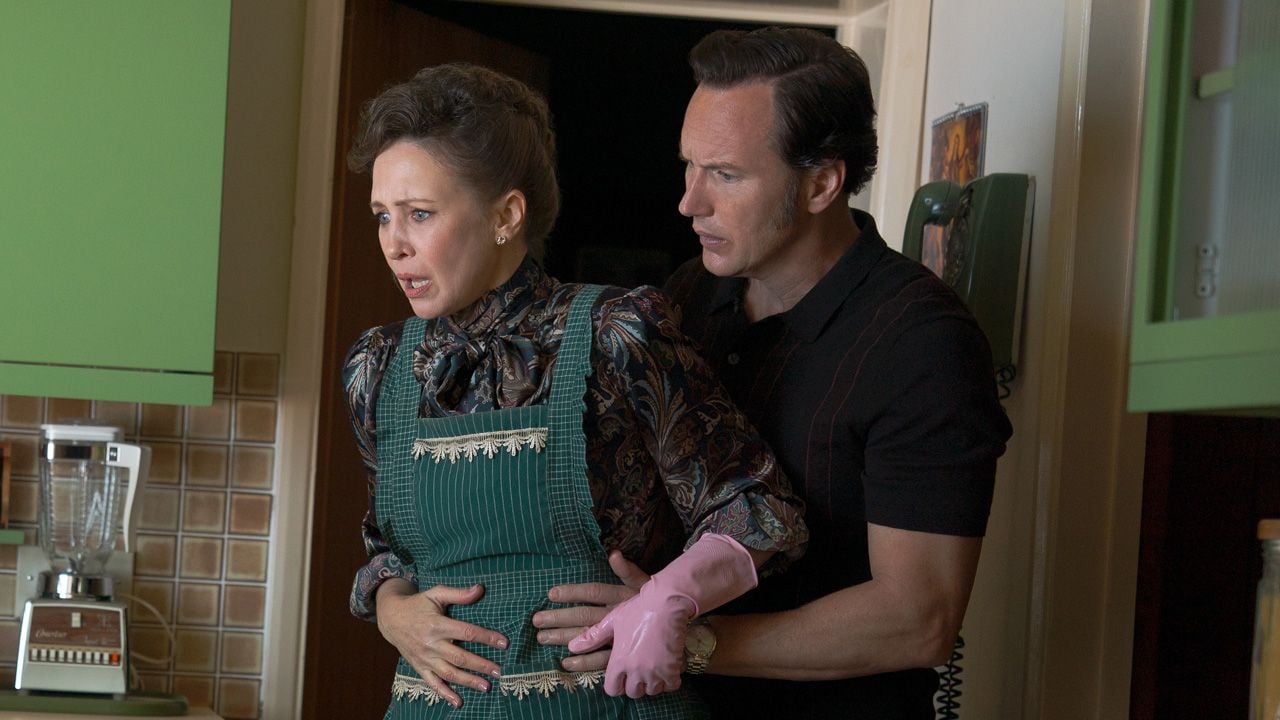At SXSW, we saw the leaders of the construction of powerful technologies like the atomic bomb say “I don’t know”
The festival already loved by Brazilians – the SXSW – ended in March but is known for leading trends that will be talked about throughout the year. At White Rabbit, my agency that studies emerging narratives and future scenarios, we study all the content during the weeks following the festival to understand what movements emerge from there and spread to other festivals. And for us the theme was not the title of a conference, but between the lines.
SXSW has always been a place of certainty. Where trends were announced, deaths were declared, and the future was prophesied. Unlike every year, we’ve seen this caution in every forecast.
We’ve seen those most responsible for building technologies as powerful as the atomic bomb say, “I don’t know.” If they don’t know, we as a society also don’t know the unforeseen consequences of what we are building. I mean, we’re doing it, but we don’t know where it’s going.
So I left with more questions than answers – and these are the four questions I brought with me to the festival. The first:
Is Artificial Intelligence an Existential Threat or a Creative Emancipation?
And just like when the internet came along and changed the world as we know it. And we are at another turning point. A turning point in our life, in our work. When the internet came along, it changed everything forever. When digital mobility arrived, everything changed. Artificial intelligence will also change everything. And that’s why almost no conference has been without talking about the artificial intelligence.
I’ve already advanced the topic in this column a few times: after all, the generative AI is the most interesting thing. But we got to hear from Greg Brockman, co-founder and president of Open AI (founder of Chat GPT, Give heretc.) has shown that not even he is able to measure all the consequences of the products they bring.
Amy Webb, a renowned futurist who also works with the US government, was one of the few to say that despite increased productivity, launches are being made with little study of their consequences.
Kevin Kelly, co-founder of Wired magazine, says artificial intelligence will not replace human intelligence. Instead, we will be able to think like an alien intelligence. A being that has other abilities. The biggest payoff from AI will be on our precious 24 hours a day. But he makes an important criticism: “The challenge will be choosing whether we want to remain obsessed with productivity or not.”
Second question:
How can we navigate complexity together if we are not in the same boat?
In this sense, the festival has been enriched with virtual reality experiences that put people in the shoes of others to get closer and touch what it means to live with a body that is not your own.
The opening of SXSW was marked by this message. Simran Jeet Singh, author of the bestseller ‘The Light We Give: How Sikh Wisdom Can Transform Your Life’ raised the question: How do we find humanity in those who do not see humanity in us?
We also listened to Amy Gallo, a work dynamics specialist who presented the lecture “How to work with difficult people”. If you think working with a difficult person, you’re not alone: 80% of people say they work with a difficult person, with 83% of them believing it affects the quality of their work. Which leads us to think that almost certainly you and I are also the difficult person in someone’s life, right?
One of the terms that gained traction at the festival was artificial intimacy. Esther Perel, a Belgian-American psychotherapist, shone when she cross-referenced human behavior in the light of interactions with computers.
What worries her is how engagement with technology is lowering our expectations of relationships with humans. For her, modern loneliness is now disguised as super-connectivity. People have hundreds of friends online, but none to feed your kitty when you travel.
Third question:
How can brands open spaces for this new world?
What we saw reinforced at SXSW about strategies and corporate positioning going forward is that brands that are willing to work towards community, collaborative and participatory communication have a lot to gain in terms of recognition and credibility and will be better prepared to incorporate tools technological .
The first development of this trend is how we appropriate technologies to co-create stories. Great inspiration was the panel of income, which is like a discussion forum. Not as popular as Twitterbut widely used among people who are building innovation.
Reddit is a case in point because it generates bonds of engagement between people in the community—they support and trust each other so much that they seek interaction and learning within their group.
Reddit COO Jen Wong has proven that the power of community engagement trumps technology. When asked about people who go from asking questions on Reddit to getting answers from tools like ChatGPT, she said, “And where do you think the ChatGPT answers come from?”
Pause for explanation: yes, what he meant is that ChatGPT is powered by community responses. It is always important to remember where the AI data input comes from.
This theme also appeared in the conference “Storytelling and cultural credibility”, by Maíra Genovese, of Empower. He said that with Web 3.0, the challenge is even greater when it comes to building narratives that foster communities and are recognized by like-minded audiences, while understanding their impact on ecosystems transformed by immersive and dynamic experiences. decentralized.
Illuminate here, the production, which has a clue for any client: brands must learn not to create stories on their own, but to co-create stories WITH their audience.
And you can’t end this conversation without clarifying that community isn’t about having an audience, huh! They are different things and the key point is the natural and symbiotic commitment and involvement between the parties.
Fourth question:
Permacrisis: how to be agents of change in a world in crisis?
This topic at SXSW was bleak as it deals with the most important agenda of our time: the non-extinction of the human species. By 2030, the deadline for the implementation of the first decarbonisation objectives, it will be necessary to accelerate significantly the development and financing of climate innovation.
And we saw at SXSW that this topic has become more necessary and more tangible in the minds of executives this year after Davos and the United Nations. So much so that the theme won a Climate Hub there in Austin, a hub that brought big names to discuss the most urgent issue of our time.
And whoever showed their faces was none other than Dino. Do you remember this campaign? Yes, they did a general overview of the campaign “Don’t choose extinction” (Don’t choose extinction) which was a success last year.
There are even dinosaurs warning us that we are choosing our own extinction. Unfortunately, we’ve changed few hands since then in terms of using fossil fuels.
We’ve also seen 16- and 17-year-old inventors join The Knowledge Society, an accelerator program that connects kids with mentors and cutting-edge technology and then releases them to solve big problems.
They were showcasing projects like an AI platform that can accelerate internet modernization in the US and also a project that converts used tires in South Africa into clean energy.
The Patagonia clothing brand was represented by its CEO Ryan Gellert. Throughout its history it is recognized in the corporate world for having carried out actions that represent a new way of being a shareholder. It’s worth taking a cue: “Companies are aware that they’ve made a lot of the mess we’ve gotten ourselves into — and they’ll be held accountable for cleaning it up at some point.”
As Ryan Gellert said, we have lost the right to be pessimistic. And it may well be that we cannot solve the climate crisis in time, but we must do everything in our power to achieve the best possible result and deliver it to the new generations.
I left with more questions than certainties. But we can’t underestimate the power of a good question: it has the potential to open up more avenues than certainties. The question and the doubt is what moves us. Curiosity makes us more humble and active. And you, what question came to your mind while reading mine?
Source: Terra
Rose James is a Gossipify movie and series reviewer known for her in-depth analysis and unique perspective on the latest releases. With a background in film studies, she provides engaging and informative reviews, and keeps readers up to date with industry trends and emerging talents.







